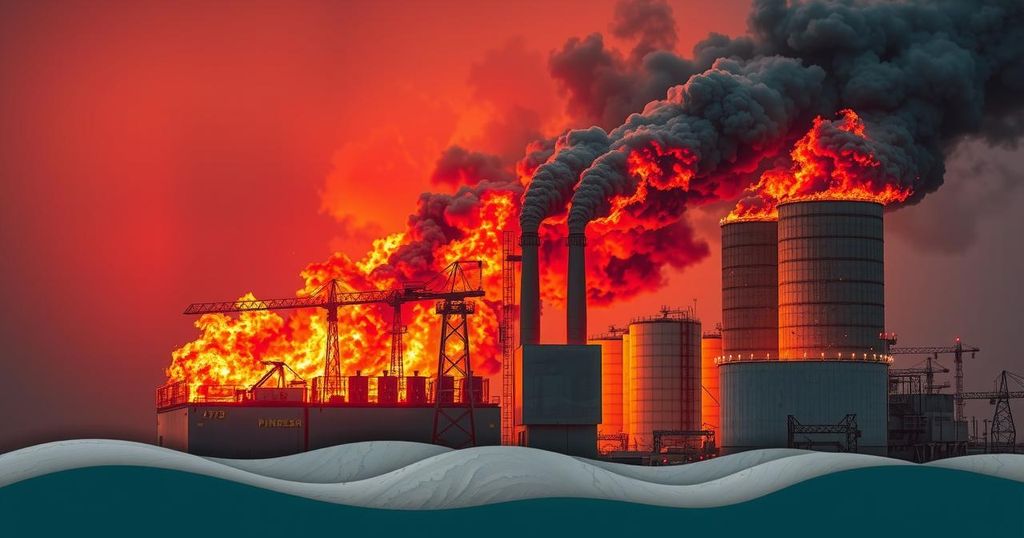Addressing Climate-Driven Fire Risks at Intersec 2025 in Dubai
Climate change is intensifying fire risks in the Middle East, leading to increasing challenges for firefighting operations. The upcoming Intersec 2025 Fire & Rescue Conference in Dubai will address these issues, focusing on technological innovations and strategies for improving fire safety in the context of rising temperatures and droughts expected to persist in the region.
Climate change is significantly increasing fire risks in the Middle East, highlighted by discussions set to take place at the Intersec 2025 Fire & Rescue Conference in Dubai from January 14-16. Experts anticipate that rising temperatures, extreme heat days, and prolonged droughts will exert considerable pressure on firefighting operations in the region. With the UAE facing 133 to 144 extreme heat days annually by 2050 and Saudi Arabia expecting 108 to 124, traditional fire safety protocols are becoming inadequate under these shifting conditions.
The conference will feature leaders in fire safety exploring innovative technological solutions to adapt to these new challenges. Senior Consultant Dana Nassif from WSP Middle East underscored the critical need for advanced firefighting technologies that integrate artificial intelligence and predictive modeling to bolster resilience in urban areas. The increasing frequency of drought—informed by the 2020 Think Hazard study—reveals an imminent risk, with expected occurrences of drought every five years in these countries.
Furthermore, Paul Jennings, Assistant Fire Commissioner from Red Sea Global, articulated the importance of rigorous safety and preparedness protocols, emphasizing the organization’s commitment to employing trained emergency responders and cutting-edge technologies.
Both nations are actively investing in large-scale water management projects, such as Saudi Arabia’s $6 billion initiatives and the UAE’s Water Security Strategy 2036, aiming to combat the growing threat of water scarcity that complicates firefighting efforts.
The conference will not only address the risks posed by climate change but also highlight advancements in fire safety, including AI-enhanced prediction methods and responses to water scarcity within firefighting operations. Attendees will include global and regional exhibitors showcasing innovative solutions across major sectors, fostering collaboration to enhance safety measures in the Middle East.
Grant Tuchten, Portfolio Director at Messe Frankfurt Middle East, remarked on the significance of Intersec 2025 as a collaborative platform for experts and decision-makers to address pressing fire risks, thereby advancing safety and resilience in the region.
The article discusses the increasing fire risks associated with climate change, particularly in the Middle East. Due to rising temperatures, increased frequency of extreme heat days, and drought, the region is facing considerable challenges in fire management. These phenomena are expected to intensify in the coming years, creating urgent needs for innovative firefighting technologies and comprehensive emergency response strategies. Events like the Intersec 2025 conference will focus on these challenges, offering a platform for experts to share solutions and insights.
In summary, climate change poses significant risks for the Middle East, particularly regarding fire safety due to rising temperatures and droughts. The Intersec 2025 conference aims to address these issues by promoting advanced fire safety technologies and collaborative strategies among industry leaders, enhancing the region’s preparedness for future challenges. With critical initiatives being undertaken by both the UAE and Saudi Arabia, the emphasis remains on improving resilience against the changing climatic conditions affecting fire management.
Original Source: premierconstructionnews.com




Post Comment